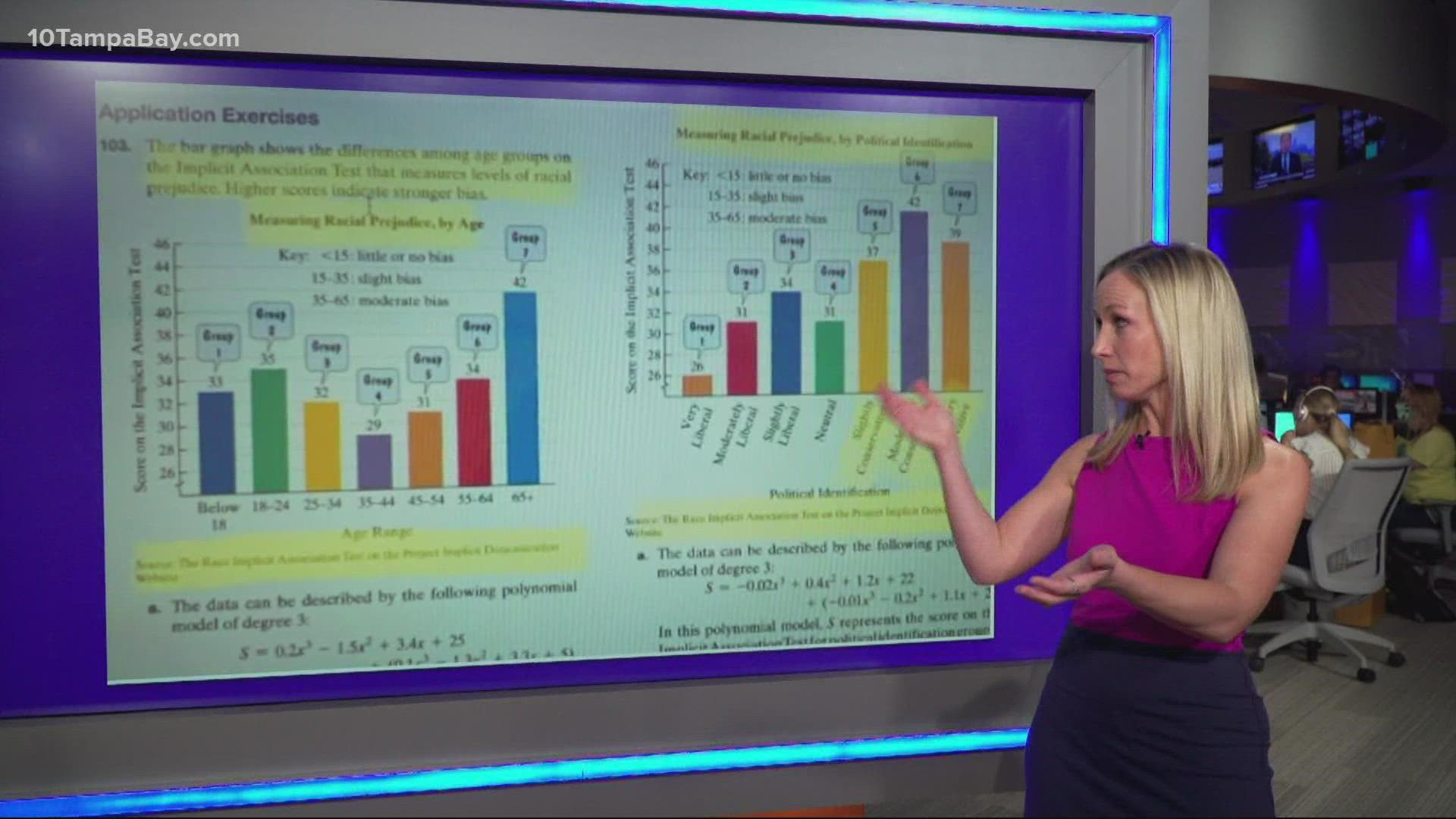TALLAHASSEE, Fla. — The Florida Department of Education has released examples of what it calls "problematic elements" within textbooks recently reviewed and rejected by the department.
The examples come a week after the department said it rejected 54 of 132 submitted math textbooks — 28 of which were said to incorporate "prohibited topics or unsolicited strategies" like critical race theory, or CRT.
The Florida DOE says members of the public submitted these examples. It is not clear if the submitted examples are from instructional materials currently in circulation in Florida schools.
State Rep. Anna Eskamani, D-Orlando, questions the source of the examples calling them "screen shots or photos of screens."
Eskamani added, "Even the most recent public input examples, are super vague, and I’m beginning to think the claim of CRT in our textbooks are not true. It’s just an effort to create boogie man scenarios and cause division within the educational sphere among teachers and parents."
Following a request for examples of rejected math textbooks, a Florida DOE spokesperson said in part in a statement to 10 Tampa Bay, "As has been recently indicated at various events around the state, if and when we can share such materials, we will work to do so."
On its website, the Florida DOE put a disclaimer before photos of the submitted examples:
"Based on the volume of requests the Department has received for examples of problematic elements of the recently reviewed instructional materials, the following are examples provided to the department by the public and presented no conflict in sharing them. These examples do not represent an exhaustive list of input received by the Department. The Department is continuing to give publishers the opportunity to remediate all deficiencies identified during the review to ensure the broadest selection of high quality instructional materials are available to the school districts and Florida’s students."
The department provided four pictures of pages presumably taken from the rejected textbooks and learning materials.
The first photo shows two bar graphs — one that measures racial prejudice by age; the other measures racial prejudice by political identification. The source cited for both comes from the Implicit Association Test on the Project Implicit Demonstration website.
The South Florida Sun-Sentinel identified Indian River County mother Chris Allen, who is a member of the conservative Moms for Liberty group, as someone who flagged this example from the book "Thinking Mathematically." She told the newspaper she did not think the company should have incorporated issues of racism and gender bias into its books.
"We hope, wish and pray that [the state] found the same things that we did," Allen said.

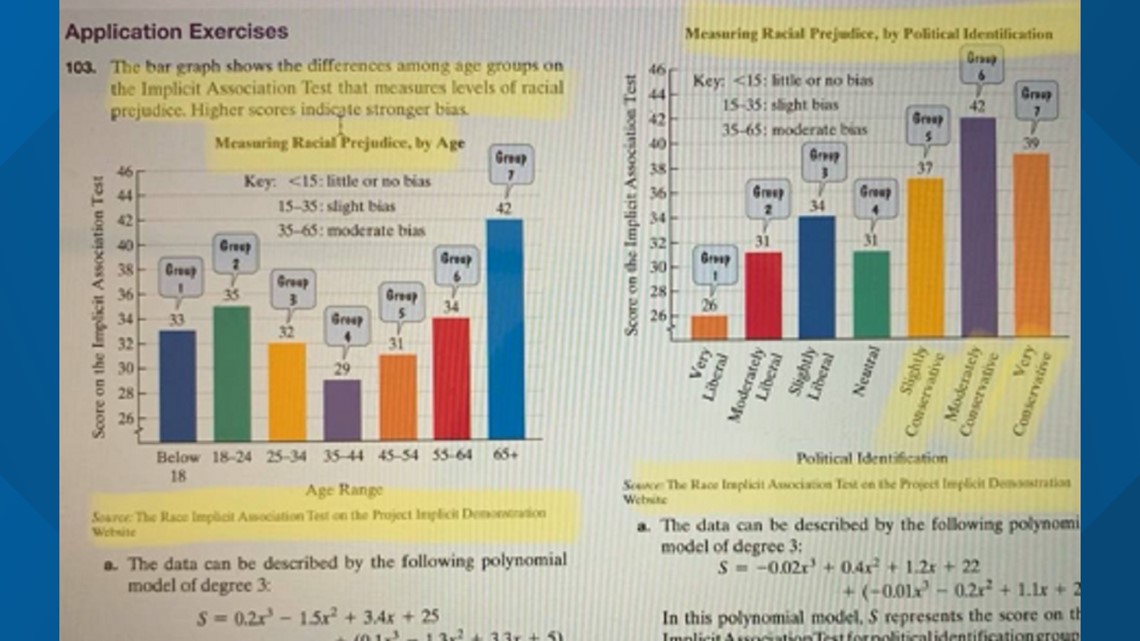
Kara Floyd, the chair of the Moms for Liberty chapter in Hernando County, said she's happy the state rejected so many books. She believes the pandemic led a lot of parents to realize their children were being taught unsuitable material.
"This does not align with what I thought was being taught. Where are my rights as a parent that my child is being taught about sexual ideology at such a young age," Floyd said.
The second photo provided by the Department of Education shows text below a module titled "Adding and Subtracting Polynomials" that reads "What? Me? Racist? More than 2 million people have tested their racial prejudice using an online version of the Implicit Association Test. Most groups' average scores fall between 'slight' and 'moderate' bias, but the differences among groups, by age and by political identification, are intriguing."

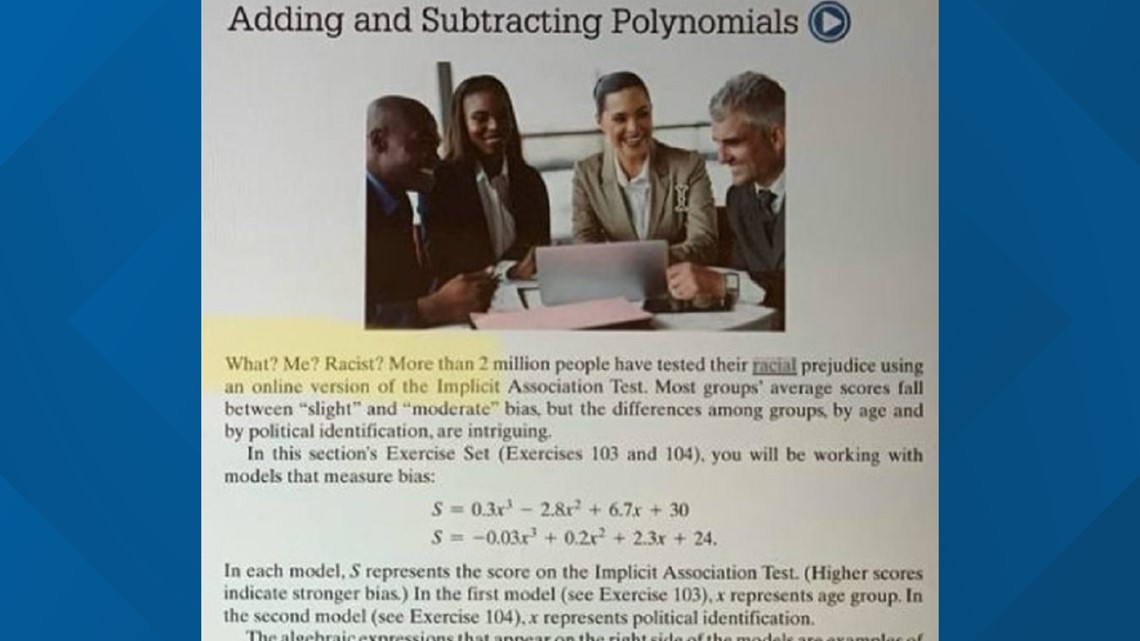
The third photo lists the objective of the unknown lesson as "students build proficiency with social awareness as they practice empathizing with classmates."

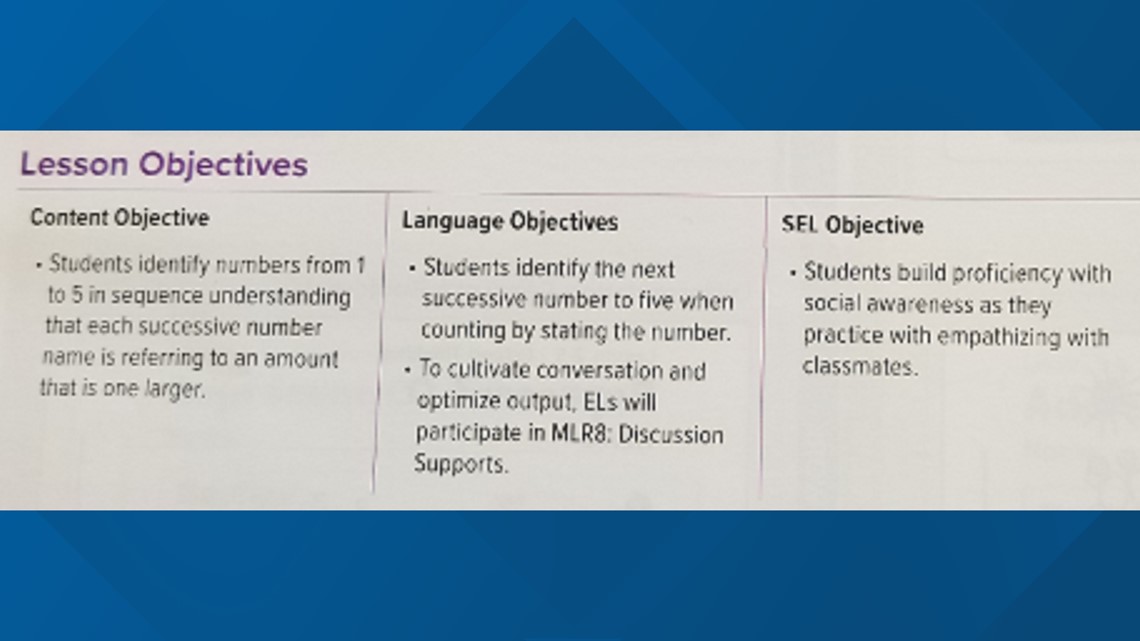
The fourth and final photo example shows a unit focused on "social and emotional learning" in an effort to "build student agency" based on "the framework established by the Collaborative for Academic, Social, and Emotional Learning (CASEL)."

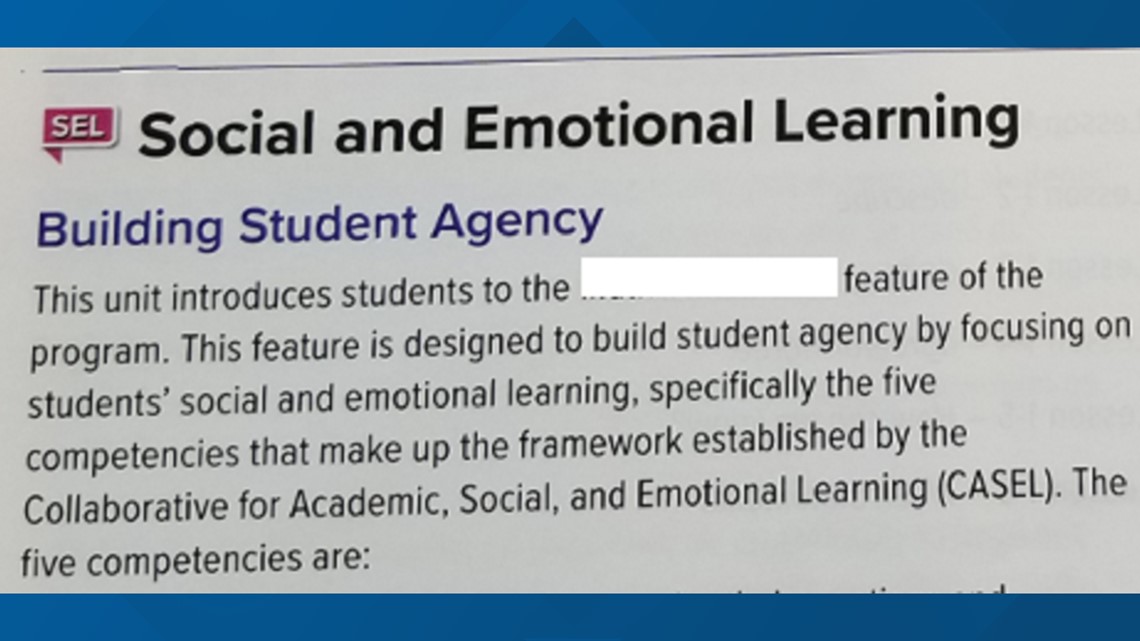
Last week, the Florida DOE said a total of 54 math textbooks didn't make the cut to make it in front of students in the state. This was because the material inside was deemed "impermissible" due to the state's new standards or because the textbooks contained "prohibited content."
"Reasons for rejecting textbooks included references to Critical Race Theory (CRT), inclusions of Common Core, and the unsolicited addition of Social Emotional Learning (SEL) in mathematics," the Department wrote.
Textbooks for K-5 learners had the highest percentage of rejection, according to the DOE.
Hillsborough County Public Schools purchased three of the books now on the state's rejected list. The district doesn't know why they were rejected but a spokesperson said staff is working with publishers in hopes the books will comply with state expectations.
Pinellas County Schools has one book on the rejected list. They, too, are waiting for the publisher to appeal or revise the material.
“We’re going to ensure that Florida has the highest-quality instructional materials aligned to our nationally-recognized standards,” Corcoran said in part in a previous statement.
10 Tampa Bay earlier asked the Department of Education to provide concrete examples and specific criteria that they say the rejected books failed to meet; but so far, the DOE hasn’t provided us those materials either.
“It’s not because they don’t want to release,” explained Gov. Ron DeSantis at a news conference. “It’s just because these are textbooks, and this is how they do it.”
DeSantis claims he’s frustrated, too. He maintains that the state isn’t intentionally holding anything back. Materials in those textbooks, he says, are often proprietary and legally protected, which keeps the state from publishing and sharing them.
DeSantis has railed against what he called a rise of "woke ideology" in instances across the U.S. In Florida, the Department of Education last summer banned critical race theory from public schools despite there not being a widespread practice of its teaching to K-12 students anywhere in the country, according to The Associated Press.
Publishers whose textbooks were not approved have the ability to appeal the state's decision. They can also revise their submitted bids to be added to the adopted list if said revision meets Florida's bid specifications.

